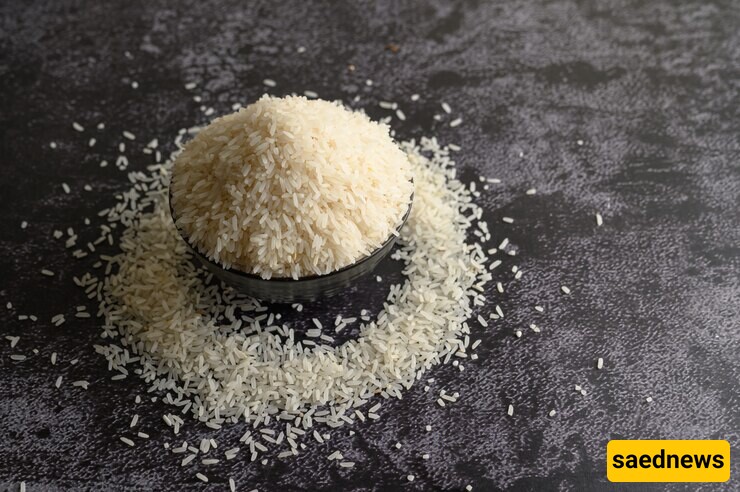SAEDNEWS: Arsenic is a toxic substance naturally present in all foods we consume. It is also found in water, meat, fish, and other foods, but usually in amounts that are not harmful to humans. Arsenic comes in two forms: organic (natural) and inorganic (synthetic), with the latter being more dangerous.

According to SAEDNEWS, Arsenic is a carcinogen that can cause problems for the skin, bladder, lungs, kidneys, liver, and prostate. Unfortunately, this harmful substance enters rice, one of our staple foods, through the soil. To prevent arsenic from entering the body, avoid consuming rice pudding, rinse your rice thoroughly, and reduce overall rice consumption.

Although rice is gluten-free, high in fiber, and a whole grain, it contains arsenic, a carcinogen that poses health risks. Arsenic in rice is particularly concerning for children, who are exposed to it at two to three times the levels of adults. To reduce arsenic exposure, consider the following strategies:
Arsenic is a toxic trace element that doesn't exist alone in nature. It forms chemical compounds with other elements and is found naturally in the environment. These compounds appear as organic arsenic in plant and animal tissues and inorganic arsenic in rocks, soil, and water. Inorganic arsenic is more toxic.
Due to environmental pollution, the levels of this toxic element are rising. Rice absorbs significant amounts of inorganic arsenic from its environment, making concerns about arsenic in rice valid.
Consuming high levels of arsenic is extremely toxic and can cause various health issues and even death. Arsenic is present in foods in small amounts and does not cause immediate poisoning symptoms. However, long-term exposure to inorganic arsenic can lead to health problems and an increased risk of chronic diseases, such as:
Various cancers, including skin, lung, bladder, kidney, and liver cancer
Narrowing or blockage of blood vessels (vascular diseases)
High blood pressure
Heart diseases
Type 2 diabetes
Arsenic is also toxic to nerve cells and may affect brain function. For children and adolescents, consuming arsenic-rich foods can lead to serious issues like:
Attention, learning, and memory problems
Reduced social intelligence and group competitiveness
High arsenic levels in pregnant women have shown adverse effects on fetuses, increasing the risk of birth defects and hindering growth.
Arsenic naturally occurs in combination with other elements. The more polluted the environment, the higher the arsenic levels. Rice absorbs arsenic more than any other food, which heightens concerns. Not only does rice contain arsenic, but so do other rice-based foods such as:
Rice pudding
Rice bran
Rice noodles
Rice breakfast cereals
Rice snacks
Brown rice syrup
Small amounts of arsenic in the diet generally do not cause harm. However, many families in Iran consume rice at least once a day, and in some cases, up to twice a day. This can lead to health problems, including:
Various cancers
Blood vessel blockage
High blood pressure
Type 2 diabetes
Heart diseases
Rice absorbs arsenic from its environment, as inorganic arsenic is present in soil and rocks. Environmental pollution increases arsenic levels, which then find their way into the human food chain. Pesticides and chemical fertilizers also contribute to higher arsenic levels. Arsenic from these products leaches into groundwater, which is used for agricultural irrigation, thereby contaminating crops, including rice.
While it is impossible to eliminate arsenic entirely from the food chain, you can reduce its levels in rice. When buying rice, opt for organic varieties. Washing rice thoroughly before cooking can reduce arsenic by about 20%. Soaking rice for several hours to a day and cooking it in plenty of water can reduce arsenic by up to 80%.
Should we be worried about arsenic in rice? Yes, because arsenic poses a health risk, especially for children who consume it more frequently. However, not all rice contains high levels of arsenic. Organic rice ensures safer consumption. Brown rice contains more arsenic than white rice, as the outer layers hold more of the toxin. If you consume rice daily, white rice may be a better option. However, organic brown rice, rich in nutrients and free from toxins, is also safe to eat.

